Artificial intelligence will undoubtedly have a lasting impact on our working world. According to McKinsey’s annual report “The State of AI in 2022,” AI tools are already being used by every second major company worldwide. In many areas, it has become essential to realize the productivity gains associated with AI in order to stay competitive in the market. In recent years, “Artificial Intelligence as a Service” (AIaaS) has driven a surge: turnkey AI tools that provide easy access to complex functions. Users can leverage them through APIs without the need to write code.
Of course, ChatGPT, the chatbot program released by OpenAI in November 2022, has further fueled this boom. A recent survey conducted by the IT association Bitkom among 603 companies reveals that one in six (17 percent) plans to adopt such AI applications, while another 23 percent have no specific plans but can envision using them. Consequently, generative AI is now making its way into daily business operations on a large scale. It is no longer just about optimizing processes and generating new insights from data. It is now also possible to use AI tools to write texts, design images or logos, or compose melodies.
For most of our Vicos (Virtual Companies), AI tools have long become an integral part of their work. They use ChatGPT to generate copy texts, DeepL for text translation, and Midjourney for image design. Even writers use creative tools like Sudowrite to overcome writer’s block.
The prevalence of AI tools among freelancers is evident from a survey conducted by the freelancer portal Freelancermap among 854 freelancers in the German-speaking region in January. According to the survey, six out of ten respondents actively use AI-based tools. AI is most commonly used for information search (53 percent) and text generation (40 percent). The most widely used tool by far is ChatGPT, employed by 64 percent of AI users. The areas that can benefit most from AI tools are development/tech/data and marketing/communication.
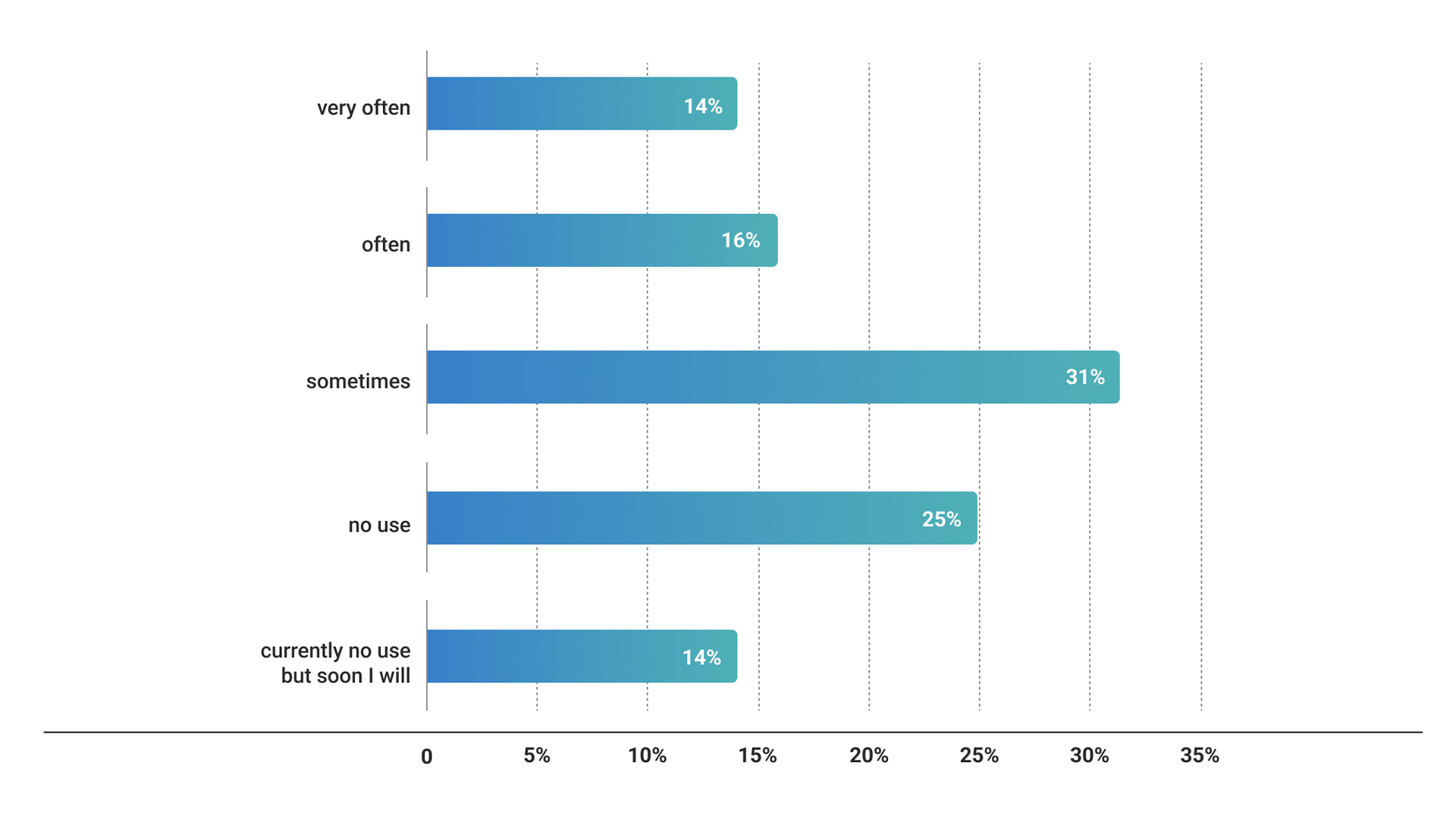
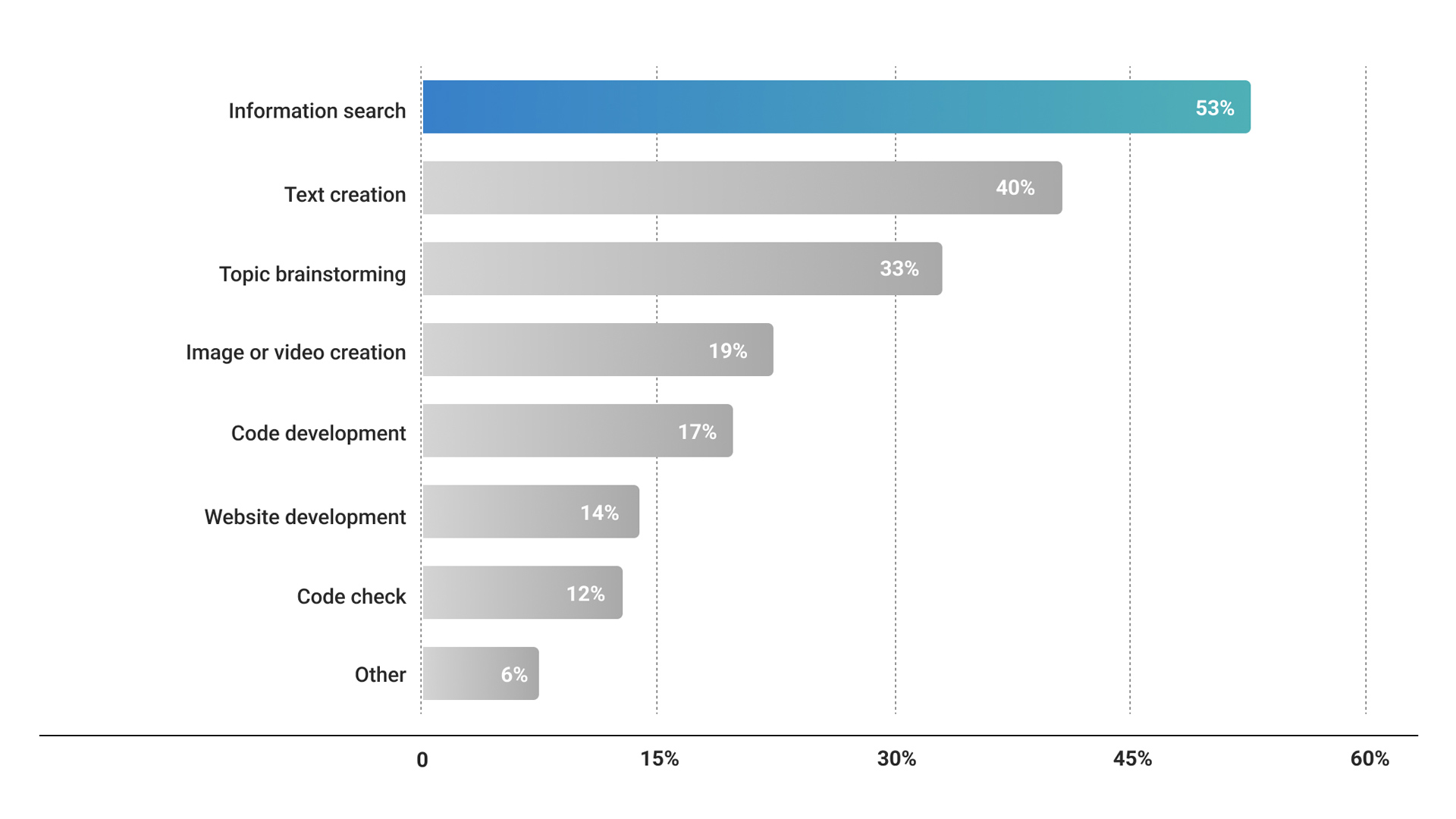
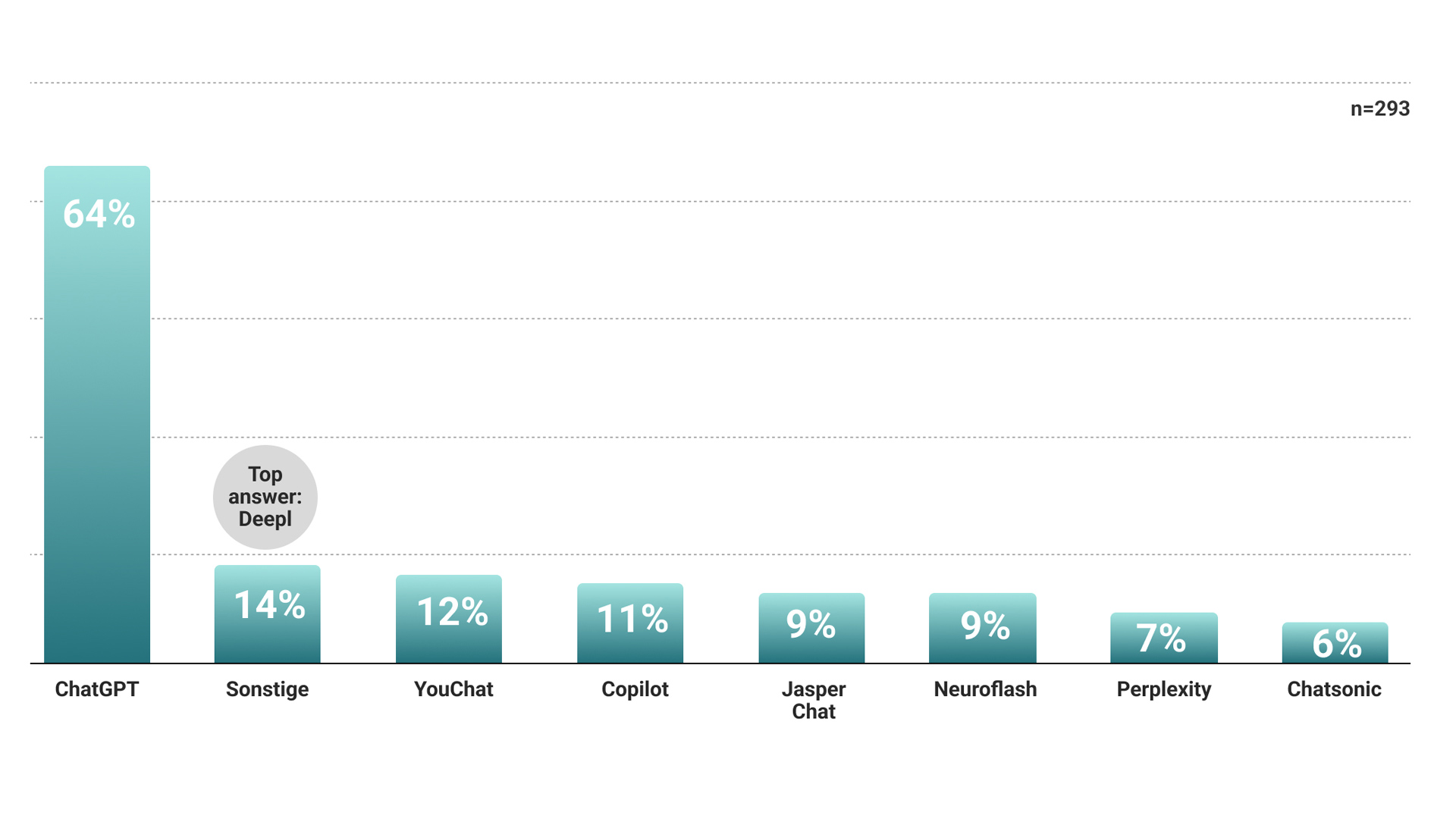
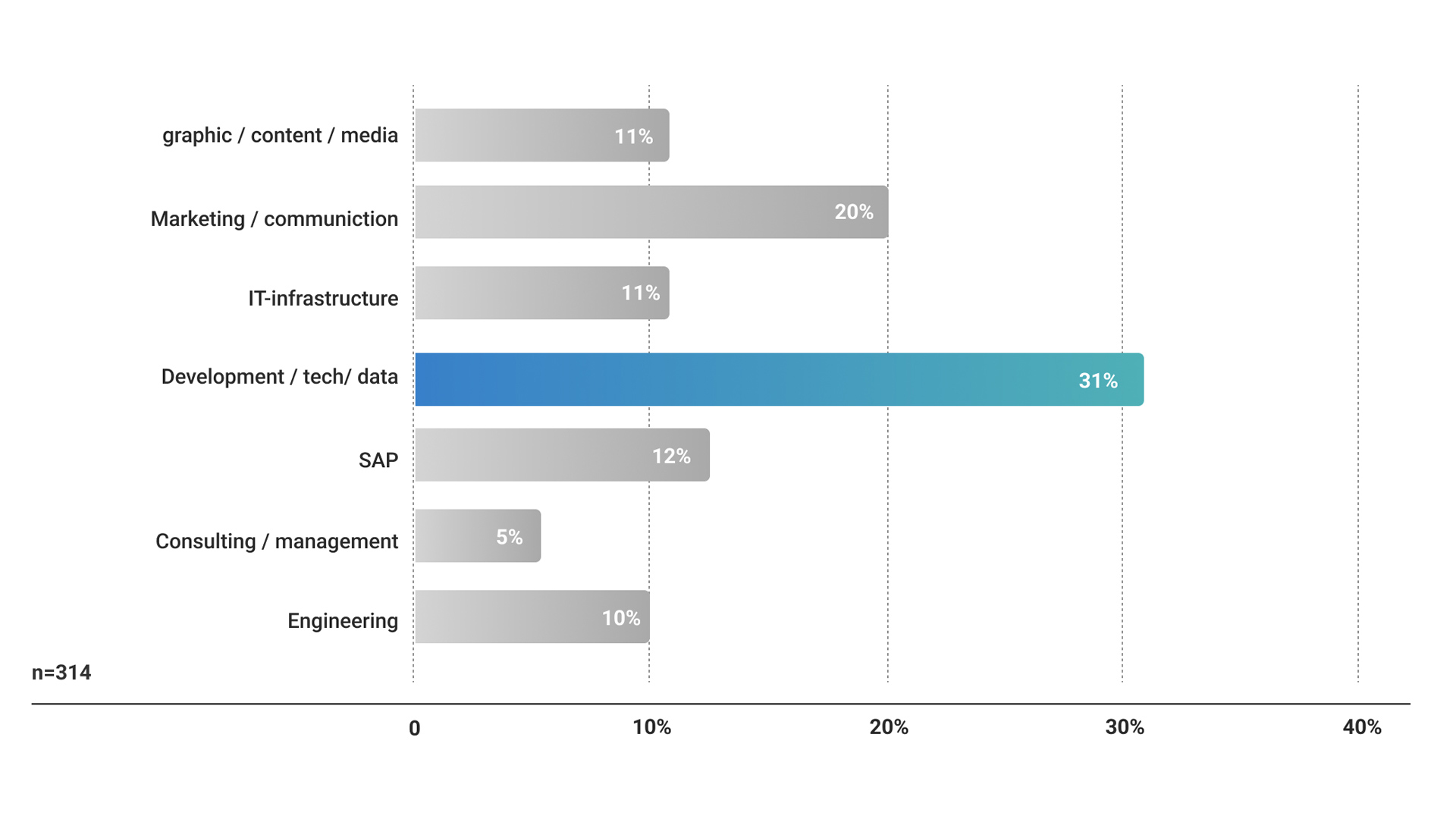
Freelancers (as part of Vicos) are using AI functionalities more frequently than companies. What is the reason for this? One reason could be the associated increase in productivity. Since freelancers are paid per project, they have a stronger interest in higher productivity compared to employees with a fixed income. As they have more flexibility, they are also more open to technological innovations. Moreover, it usually takes longer for companies to acquire and set up AI systems compared to more flexible self-employed individuals.
In fact, in many companies, it appears that freelance experts are the driving force when it comes to the adoption of new technologies like AI. This is shown in a study published by the German Economic Institute (IW) in April. The study surveyed nearly 900 companies from the IW panel in spring and summer 2022. “The use of external personnel is a catalyst for digital transformation at the corporate level,” states the study’s summary. This hypothesis is supported by the fact that IT issues are among the most common areas of application. Furthermore, the analyses indicate that freelance workers/solo self-employed individuals play an important role in the implementation of digital frontier technologies. For example, 28 percent of the respondents stated that they use solo self-employed individuals for implementing projects in the field of innovation/digitalization, and 56 percent expect them to provide access to specific expertise in general.
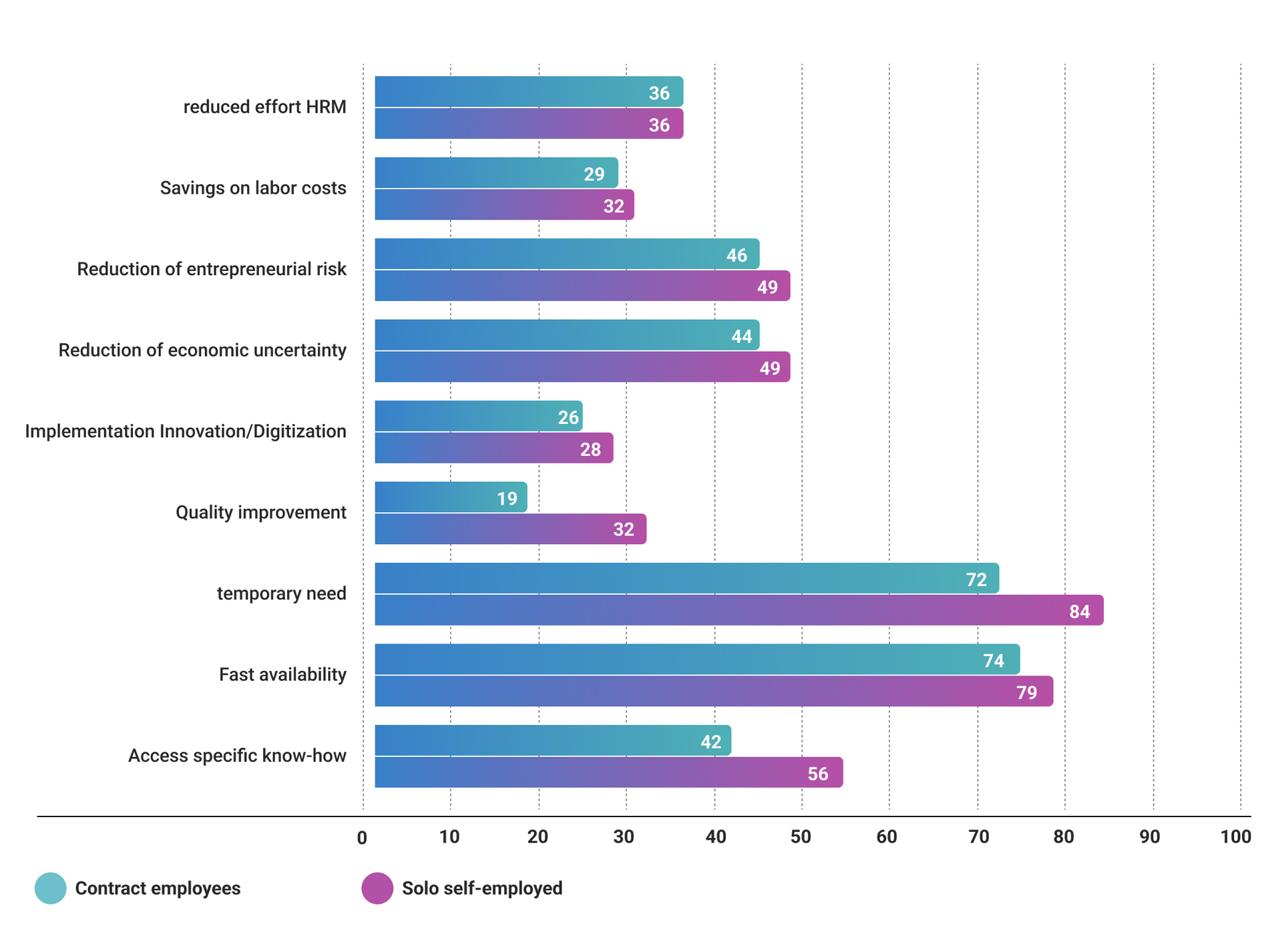
The increasing demand for AI expertise among freelancers is also evident in the United States. The US freelancer platform Fiverr has seen a 1400 percent increase in AI-related inquiries over the past six months. “We are increasingly seeing freelancers creating offers related to the world of generative AI, using the latest tools such as ChatGPT, GPT-3, Midjourney, Dall-E, and Stable Diffusion,” quotes Venturebeat Yoav Hornung, Head of Verticals and Innovation at Fiverr. Companies are particularly interested in experts in the field of prompting, which involves communication with AI. After all, the quality, especially in generative AI, depends on how well and precisely the tasks are formulated.
So, does artificial intelligence bring golden times for Vicos (Virtual Companies)? It’s not that simple. No one likes to talk about it, but AI is leading to the elimination of tasks and jobs within companies. This development can also affect certain areas of the freelancer community. Bloggers, SEO and copywriters, proofreaders, translators, editors, logo designers, product photographers, or data analysts are considered particularly vulnerable.
“To be honest, I’m concerned that millions of people will be out of work by the end of the year,” recently stated Melissa Shea, co-founder of the Fashion Professional Network Fashion Mingle, to Forbes. “I’ve never hired a better writer than ChatGPT.” Before discovering ChatGPT, Shea regularly hired freelancers through the Upwork platform, but that’s no longer the case.
However, freelancers remain optimistic. In the aforementioned survey by Freelancermap, 65 percent of respondents believe that freelancers cannot be replaced by AI in the future, while only 18 percent agree with that statement. The areas most likely to be at risk are graphic/content/media (25 percent) and marketing/communication (24 percent).
What do employers say? The survey also included 184 project providers. Here, 63 percent of them also believe that freelancers will not be replaced. Project providers expect substitution to be most likely in the areas of graphic/content/media (24 percent) and IT infrastructure (21 percent).
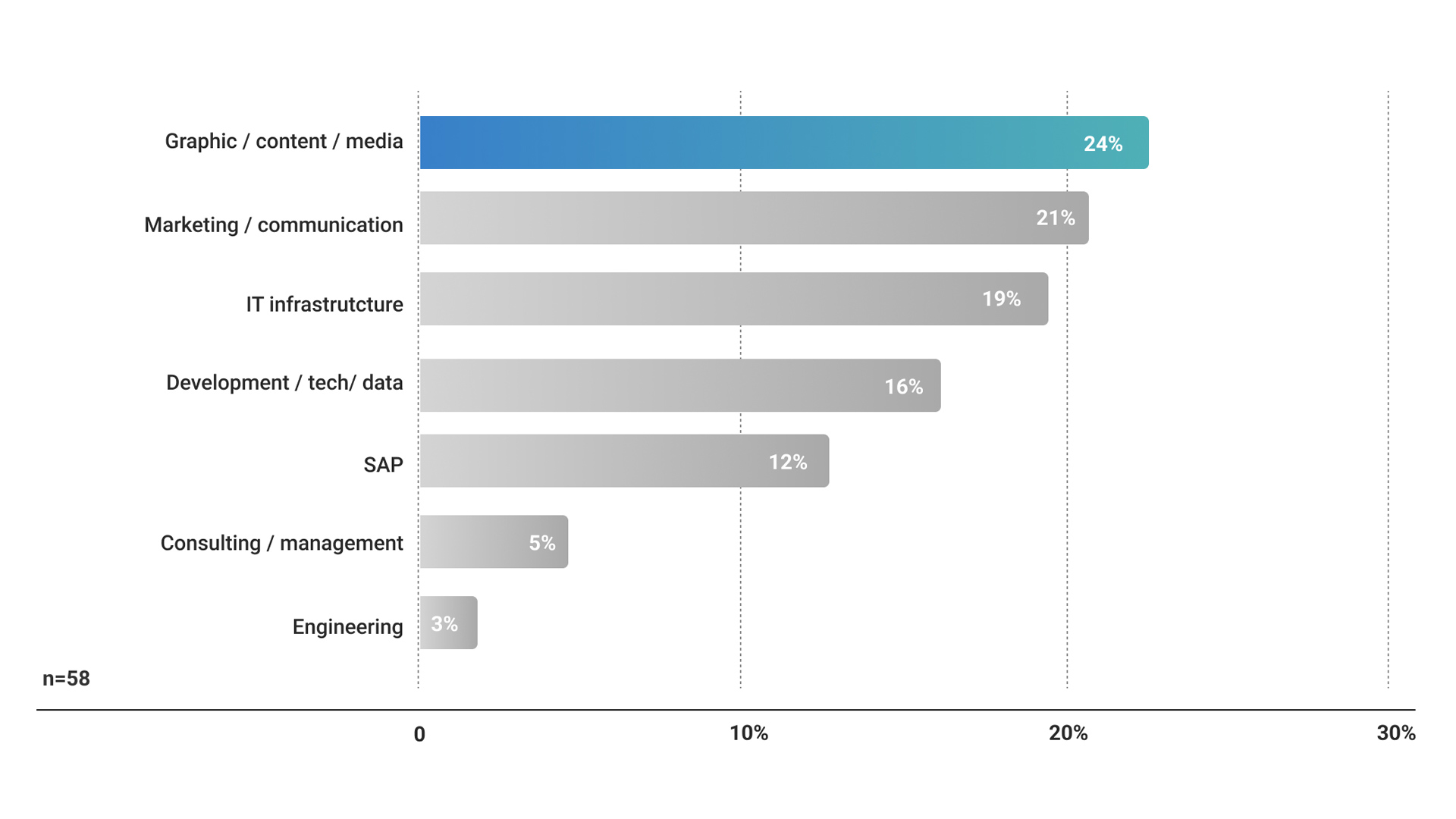
What does all of this mean for Vicos (Virtual Companies)? They are definitely advised to familiarize themselves with new AI technologies early on in order to increase their productivity and potentially gain first-mover advantages. At the same time, they can take a more proactive stance with their clients by recommending and driving the adoption of AI technologies. Those working in “at-risk” areas should leverage the gained efficiencies to expand their expertise and portfolio of services.
Vicoland itself has also started utilizing AI technologies that significantly facilitate collaboration between clients and freelancers.
